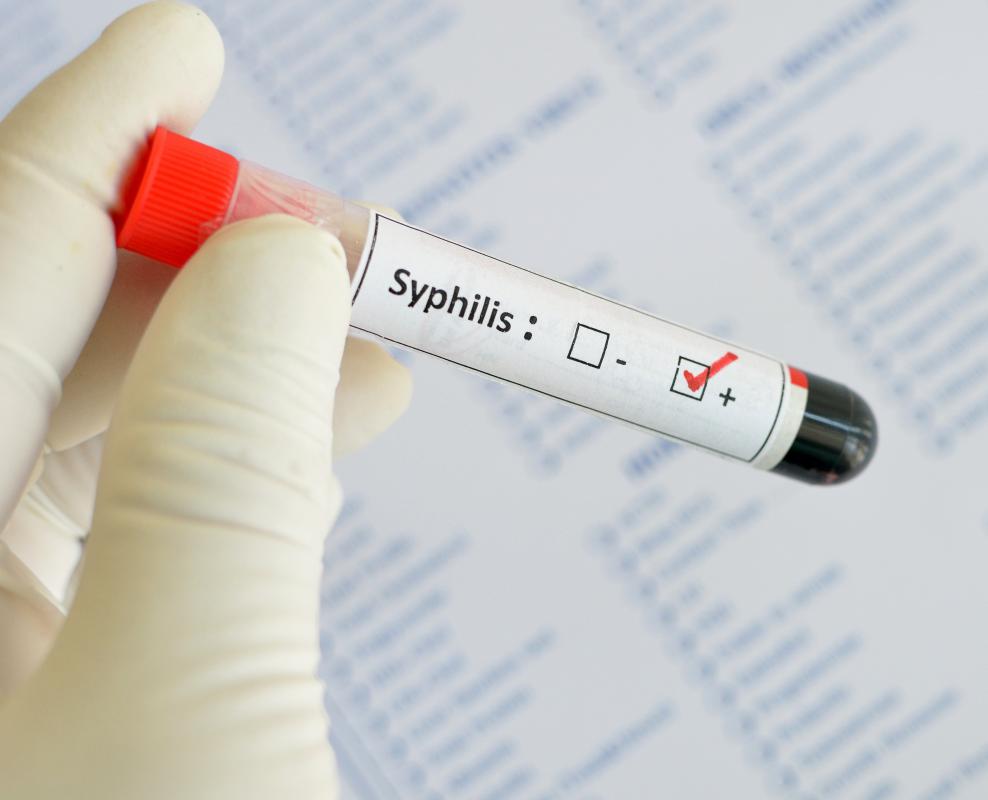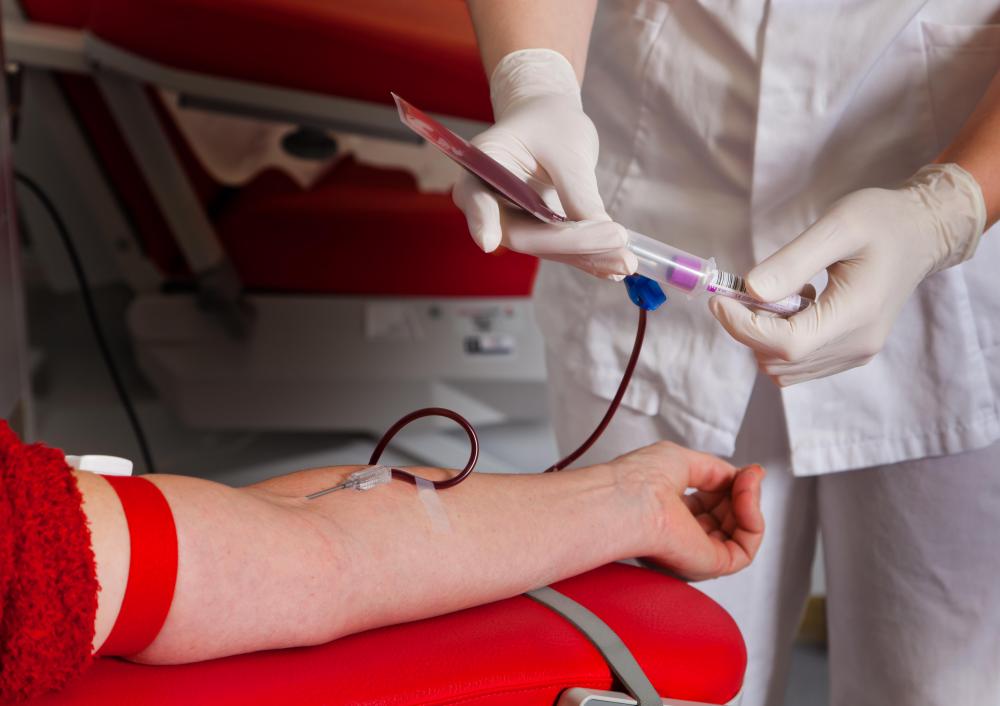At WiseGEEK, we're committed to delivering accurate, trustworthy information. Our expert-authored content is rigorously fact-checked and sourced from credible authorities. Discover how we uphold the highest standards in providing you with reliable knowledge.
What are the Most Common Syphilis Effects?
Syphilis is a bacterial infection that is a sexually transmitted disease, or STD. Though it’s not always contracted through sexual contact, syphilis is usually contracted via the genital regions. Anyone who comes into contact with a bare infectious lesion is at risk of becoming infected. There are a variety of syphilis effects, and they typically occur in stages. Syphilis can cause damage to an assortment of body parts, both internally and externally.
The first stage of syphilis is primary syphilis. This stage is the victim’s first introduction to syphilis symptoms. These warning signs typically appear within 10 to 90 days following exposure.

The first signs visual of syphilis are typically small sores around the genitals, anus, or mouth. Unlike the effects of other STDs, though, the lesions can occur anywhere on the body. There is usually just one sore, and it typically appears at the offending bacteria’s point of entry.
These skin lesions, called chancres, are usually painless. They are pink or red in color, and appear to be a small dot of inflamed skin. The sore typically goes away spontaneously after a couple of weeks.

A person’s lymph nodes are affected during primary syphilis, as well. Lymph nodes in the groin area often become inflamed within 10 days of infection. These little organs, part of the immune system, are distributed throughout the body. When a bacterial infection like syphilis occurs, the lymph nodes become enlarged.
With treatment, syphilis effects may be curbed after the primary stage. If that does not happen, however, the victim’s body moves onto the secondary infection stage. This stage brings on several syphilis effects. Secondary syphilis occurs at around six months after initial contact or the primary infection.

During this stage, a victim of this disease will most likely experience skin rashes. Like most other rashes, these are red or brown and may appear anywhere on the body. Fever often accompanies secondary stage syphilis, as does fatigue. An overall feeling of achy pain and soreness is prevalent during this stage. The swollen lymph nodes and sores can come back, as well.

Latent syphilis occurs when syphilis goes untreated. This hidden state of the disease can last many years. Syphilis effects may not even return. Unfortunately for some victims, after latent syphilis occurs, tertiary syphilis is next. In these late stages of the disease, the brain, nerves, joints and other organs may be affected. Some of the syphilis effects endured during this stage include random muscle movements, numbness, and paralysis, amongst others.
AS FEATURED ON:
AS FEATURED ON:

















Discuss this Article
Post your comments